|
I’ve known a lot of love in my life. I know the love I have for my parents. It’s a love wrapped up in safety and stability. A love that is rooted in a comfortable and consistent childhood. This love was bred through the outpouring of their generosity and selflessness that they have bestowed upon me my entire life. I know the love I have for my siblings. A love that is built on shared experiences and a shared bloodline. This love was the first one that required something of me – an offering, of sorts. This love isn’t just given to me like the unconditional love of my parents, even though we are obviously connected. It has been built over time through constant interactions where love is both given and received. I know the love I have for my husband. A love rooted in romantic attraction that overflowed into an unwavering, deep, and intimate love. It is sacrificial at times, but is also extremely fulfilling as we both try to love one another well. I know the love I have for my closest friends. This type of love is perhaps the easiest love I experience. It is enjoyable and simple because it doesn’t come with many strings attached. It is a love that is planted in common interests, similar personalities, and in finding others who enjoy life the way I do. It is reciprocated on so many levels and fills up my soul in innumerable ways. I know the love I have for my biological children. A love that was born with their conception, and continues to grow over time. This is the most selfless love I had known, one that is wrapped in a constant state of giving during the younger years and only begins to see reciprocation over time. There is obvious hope that one day the love I’ve poured out over my sons will be repaid with love and compassion in their adult years (Please, Jesus). But for now, it is exhausting and unwavering as my love cup runs dry each and every day in caring for them. But I’ve never known this kind of love before - the love of a foster child. Why does this love feel different? Why is it harder to nourish? People call me a loving and compassionate person, but why don’t I feel that way? These questions have rolled around in my head as I’ve wondered why my heart is in such turmoil. I am a “black thumb with a speck of green” kind of gardener. I envy those beautifully manicured yards, and want one for myself, but fail to remember that I am both inept at producing such beauty and also unwilling to pay someone to create a front yard masterpiece. And so, I have come to terms with the fact that I will never win Yard of the Month. It is my lot in life.
When we first moved to Hawaii, a good friend, Troy, showed me how to “root” a pineapple. (Confession: At this point in time I didn’t even know how pineapples grew – Was it a tree? A vine? A root?) I am clearly ignorant, so when he said all you have to do is “root” the pineapple, it was as if he was speaking a different language. The only “rooting” I knew how to do was to root on my favorite sports teams. But rooting a plant? I was clueless. I knew my own limitations in the gardening arena, but I tried my best to seem interested. Troy showed me how he simply removed the spiky ponytail (it’s a technical term) from the top of the pineapple he was fixin’ to eat, tore off a few of the bottom leaves, and placed it in a glass of water. Over several days, little roots started to form in the water, until the entire glass was filled with thin fuzzy tentacles. His method seemed simple enough, and so I pumped myself up to attempt this gardening challenge in my own home. “COME ON, MAC!” I told myself, “YOU CAN DO THIS!” (My inner voice sounds like a cross between my father’s reprimanding tone and a British soccer coach I had as a child—and the combination of these voices is the perfect sound to move me outside my comfort zone.) I followed Troy’s instructions meticulously, and kept my eyes on that spiky ponytail daily. I watched as the little fuzzy tentacles began to emerge under water and, over a few weeks, filled up the glass. When the time came to place that precious treasure in a pot, I picked out the perfect planting soil (recommended by a professional, obvi) and created a comfortable and dirt-y home for my pineapple pal. My eyes beamed with pride as its green arms began to grow bigger and longer, reaching out beyond the width of the pot itself. My boys were also excited to see how big this plant was getting and often tried to “shake” the green palms that were shooting out from the dirt. Consequently, my pineapple pal has some scars to show for this type of mistreatment, but even these little bumps and bruises didn’t inhibit it from growing. After about nine months of watering (when I remembered) and attending to its pineapple needs, this little guy began to produce fruit. A small baby pineapple appeared from the center of its green tentacles and has been flourishing ever since. Even though pineapple care is relatively simple, the plants do not produce fruit overnight. It takes months, and sometimes years, to grow the thorny and delicious treat that is starring in every piña colada near you. In addition to the pineapple, Hawaii has some of the prettiest foliage I’ve ever laid eyes on, and one in particular has captured my attention – the ginger plant. Not only does it have a tasty root that will cleanse your palette at a sushi restaurant, but its hot pink flowers and tall blooming stems have me completely smitten. The problem with my pineapple success story is that I began to inflate my own gardening abilities. So when Troy dropped off a rooted ginger plant that he found by a truck on a side of a road (this is normal business for Troy), I thought I was about to enjoy my very own ginger plant for years to come. Too easy, I thought to myself. The roots of the plant were intact, and all that was required was to transplant this sucker into my yard. I didn’t have any fancy dirt at the time, but thought I could just dig a hole in the middle of my “flower bed” and this ginger would put on a show for me. (I say “flower bed” loosely because it is where flowers are supposed to live, but don’t. It’s more of a “rocky soil area in front of my house”. You get the idea.) Unfortunately, this ginger plant could see right through me. It knew I didn’t have any skills, and could also tell that I simply wanted it to perform even though I hadn’t given it much nourishment. When you live on what used to be an old airstrip, your soil is filled with hard rocks and pavement remnants and transplanting an uprooted plant into this rocky soil doesn’t yield the best results. I watered the little guy for a few days before its pink flowers wilted and its stalks broke in half – collapsing into the rocky soil where it will rest in peace forever. Amen. It was there in the wake of the ginger fiasco that my heart got the answers I was so desperately seeking: This new love was unusual because it was founded in different soil than any of my other loves. My established relationships are cultivated in healthy soil—soil that has been nourished over time, watered consistently, and given sunlight even through some of the darkest days. I realized that, up until now, I had only experienced the pineapple kind of love. Sure, I had a few bumps and bruises, but I have been nourished in vibrant soil for my entire life and have been able to produce healthy fruits. I have had people surrounding me, ensuring my roots were strong enough to survive harsh times. I say this not to be arrogant, but rather to show how troublesome it can be when someone who has only experienced pineapple-type love has to nourish an uprooted ginger plant. Loving a foster child is different because it is a love rooted in brokenness. In fact, the only reason I am able to even experience this type of love is because of the pain, hurt, and trauma that tore up its roots. Our little BF has had his love roots planted, then uprooted, then transplanted, then uprooted, then transplanted again – all in the first 18 months of his life. And while I have prayed we could be the healthy soil that he needs to dig his roots down into, there is no guarantee his roots won’t be torn up again. But, dear friends, I am not the Gardener. I simply know Who is, and He is creating this masterpiece, not me. (Hallelujah.) Little did I know that God would still be answering the simple prayer I whispered almost a year ago, “Break my heart for what breaks Yours, Lord.” I thought He was done with me when my heart was completely shattered for foster children, but I realize now, there was more to the story. The story didn’t end with my broken heart, dear readers, but rather just began. The real answer to prayer came when I realized that my heart had to be broken in order to let the light in—light that allows me to see my Father’s heart more clearly. I always thought James was a little brazen when he made this statement: “Religion that God our Father accepts as pure and faultless is this: to look after orphans and widows in their distress and to keep oneself from being polluted by the world.” I mean, c’mon, James. I get that you’re Jesus’ brother and all, but where do you get off making such a bold statement? Jesus called us to more than that, didn’t He? He wanted us to be good stewards of our resources and be gentle in heart and treat others the way we want to be treated. Don’t get me wrong, He asks us to look after the poor and the sick, but for James to drop the bomb that THIS, this one specific thing, is what God considers pure and faultless religion? I never really bought it. Until I had my heart broken. Now I see. Now I see that His love for us is also rooted in brokenness. Isn’t God’s love simply an outpouring of undeserved grace on this sinful, broken world? God did not intend for such brokenness and pain to fill His entire creation, but He loves every one of us right through the trenches, right through the sin, right through the guilt, right through the valleys. Now I see that if my entire mission in life is to live a life worthy of the calling God has placed on me, and if my greatest prayer is that I will strive to be more like Jesus Christ each and every day, I must learn to love people through the brokenness like He does. Now I see that if I spend my entire life only indulging in the easy, pineapple-type loves I will never fully experience the sacrifice it takes to love and nourish the uprooted ginger plants of the world. And, oh dear friends, it is NOT easy. After all, I’ve been loved so well my entire life, that I failed to realize how comfortable I had become. My heart has been fertilized so frequently that I have forgotten what it’s like to feel stretched or uncomfortable or awkward or strained. This is undoubtedly the most difficult love I’ve ever experienced, and it does not come without incredible amounts of sacrifice. It is completely selfless and exhausting and all-consuming. The reciprocation comes in the tiniest forms – a sweet smile, a precious hug, a contented snuggle. But the long-term prize? The mortal reward? It doesn’t exist like it does in my other relationships. If the day comes when our little BF goes back to his family, my only prize will be the pictures and memories left behind. When I’m struggling to love our little BF through his brokenness, I am in awe of our Savior who does it so gracefully, so perfectly. He pours His love out over all human kind and it is often unreciprocated. We shun Him, turn our backs to Him, deny His existence, walk completely different paths than the one He has set before us, and His response is ALWAYS the same: He LOVES us. My pineapple plant taught me that the only way we can Love like Jesus, is if we move beyond our cozy little planter and go attend to the broken, tattered, and suffering hearts around us - even when, or especially when, it requires digging into rocky soil and lavishly pouring out nourishment until our water can is empty. So let us not confine our love to the easy-to-love people in our lives. Let us find the uprooted, transplanted, deeply broken ginger plants on the side of a road or hidden all over our communities. Let us make the choice to love them the way God loves us. Let us be the soil that can nourish those broken lives for years to come so that even in their brokenness they will see the beauty and hope that is rooted in the sacrificial love of Jesus. Let us be known by our love, dear friends. Let us be known by our love.
1 Comment
|
McKinleyI am a lover of people, a child of God, and a laugher at jokes. I write words, cry tears and smile at strangers.
Archives
March 2017
Categories
All
|

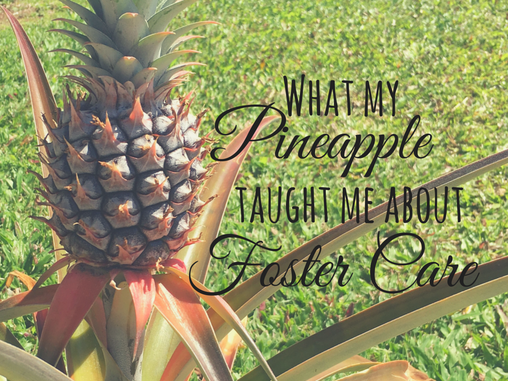
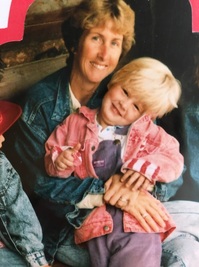
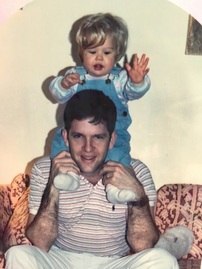

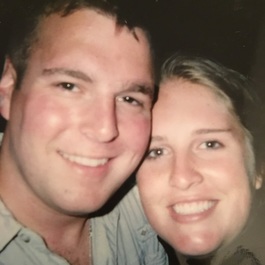

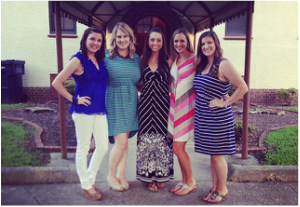

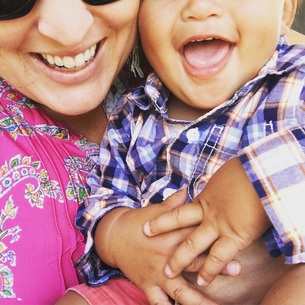

 RSS Feed
RSS Feed